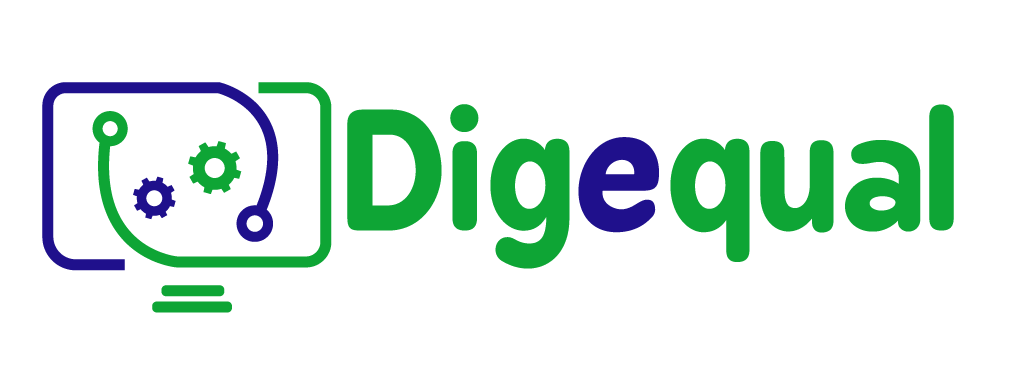Why Should I Participate?
e-participation is not far from participating! Actually, for many ways, it makes things easier – if you want to be connected to important activists or organisations, you can use the existing technologies and not be cut out from the major discussions and what it is currently happening in the world. Exploring the world of e-participation not only expands our understanding of democracy but also empowers each of us to actively contribute to the public discourse from the comfort of our own homes.
Participation is one of the main elements of human development. Before we consider it the process that enables society to move forward, we can define it as the art of existing. We are part of groups, join actions and gatherings and form friendships and relationships. It is this procedure that allows people to bloom, learn through others, as well as teach them, and eventually become part of the whole, each in their extraordinary way.
We can consider participation the very essence of society, the core of co-existing and societal progress. Using simple words, it is the process through which people speak their minds, express themselves, share their opinions and preferences, and effectively shape the future by being a part of the respective procedures.

In the case that we currently examine, e-participation, that is, citizens can become involved and participate in the processes of decision-making of economic, social, cultural, and political processes, with a twist. All the required steps of these procedures, from the beginning to the end, take place digitally, independent of time and space. Citizens are thus able to voice their opinions, their ideas, and their needs via the internet and the technologies and platforms offered.
And through that, we shape our society to the point of feasible, come in contact with our fellow citizens, our neighbours, and the people we live with; and collectively decide and express on matters that are part of our lives. The importance of the value of participating in public matters and affairs thus stands the same; the means, however, of how that comes to life are taking a rather interesting, digital turn towards the future, making our lives much easier.
Why Should I?
By scratching the tip of the iceberg, we can easily understand why it is considered a virtue for a person to participate in societal matters. Is that the case, however, when it comes to e-participation, and why?
Below there is a list to be found. Without complex meanings and terminology, it consists of the main reasons why e-participating is essential.
Integration of Citizens in the Political Debate
Many discussions and procedures of social and political interest were mainly localised or limited to specific circles. Digital networking makes it possible for these matters to become known to the general public. Thus, the general public begins to become a part of socio-political discussions.
It is becoming increasingly clear that political debates are no longer conducted and decided only by politicians or influential interest groups and decision-makers. Citizens are not only observers who feel they do not have a say on important societal matters.

The phenomenon can be separated into two parts. On one hand, we witness technology becoming a means in the hands of citizens, through which, they are able to communicate, exchange opinions, propagandise ideas, and organise against, or in favour, of certain situations; all that in the blink of an eye. This not only brings people closer in terms of expressing ideas and proposals in social – political matters, as well as creating and participating in, pressure groups and organisations of such nature, but it also drastically reduces the time it takes to do so. Social media groups are able to expand and reach out, citizens can freely express themselves to a greatly wide audience (always respecting the regulations of each digital community), and all in all, the debates are getting much richer and wider.
On the other hand, governments are providing more and more platforms through which citizens are able to have a say. Whether on a European, national, or regional level, digital platforms become the means of propositions, debate, pressure, exchange of ideas, birth of movements, or provision of one’s city or neighbourhood.
European Level
- On a European level of debate, proposals on the direction of our societies, and coming together we shall definitely stumble upon the ‘European Citizens Initiative’ (ECI). The ‘ECI’ is an EU mechanism which focuses on increasing citizens participation in the development of EU Policies, thus increasing direct democracy. Through ‘ECI’ European citizens can shape the future of the EU by calling the European Commission to propose new laws. Once a specific initiation reaches 1 million signatures, the European Commission will examine the proposal, and decide on the following actions.Currently there are 7 member states participating on the initiative.
- “Promoting Linked Open Data (LOD), Free Software and Civil Society Participation in Law-Making throughout the EU”. The project was launched on 2015, upon request of the European Parliament, and it focuses on promoting the development and use of tools enabling civil society throughout the EU to participate in the preparation of standard-compliant documents throughout the law-making process, and to facilitate the integration of these tools in the Linked Open-Data Framework. This becomes possible via a Web platform which allows citizens to participate in public consultations within the EU decision making process. By the platform facilities, citizens can provide comments and amendments on pre-legislative documents, as well as expressing sentiments on them, at the level of the articles.
The project has been realised by the Publications Office by the EU. The main outcome of the project is a fully operational prototype of an e-Participation platform for the discussion of EU legislative proposals. Legislators upload draft laws on the respective online platform, with citizens being able to comment, vote, and propose on the provided drafts.
National Level
- “Parlement & Citoyens – P&C” (Parliament & Citizens), France. P&C is a platform that enables legislators and citizens to work together on draft policy proposals.
- “Open Council of Europesione – Monithon”, Italy. The platform enables citizens to track and monitor the expenditure on a national level, and the impact it has on the community. The platform focuses on encouraging citizens to become actively involved in the supervision of public expenditures and their efficiency, as well as build citizens’ confidence in understanding and managing public funds.
Regional Level
- “SenseCity”, Patras, Greece. ‘SenceCity’ is an application that allows citizens to report issues related to their city, to the respective public authorities. From damaged roads and pavements, to accumulated trash at certain spots, citizens are able to participate in the problem-solving processes of the city, while at the same time enhance their relations with the municipal and public authorities. The user can record the issue with their phone, and upload the material on the application; the authorities shall be informed, and proceed with the respective actions.
- “Open Municipal Information – Open State”, Netherlands. The examined program has been applied on the level of local authorities, focusing on creating a “democracy of action”, where citizens can address social issues alone, without the intervention of public authorities. The program enables citizens to submit their own, alternative proposals on how to address specific issues in the community.
More and more platforms and systems in several European countries allow citizens to express themselves on laws, decisions, and policies. Citizens come together, from the simplest of acts, getting to know each other that is, to taking action, making proposals, commenting on laws, and the shaping of their everyday lives, establishing thus the very essence of society; participating.
The mentioned procedures are not supposed to work like a charm from the first day of implementation, meaning that inclusive policy-making and political debates will not be applied in a moment, or change at once the present establishment of policies and ways. It is however a great and rather interesting beginning towards voices being combined and swirled in a beautiful vortex of polyphony and respect.
Governance Becomes Faster and More Efficient
As mentioned, we are rapidly moving towards the era where most government services are taking a turn towards the digital spectrum. Most countries have developed a digital system through which citizens can carry out many services, if not all of them. Issuing applications, and permits, proceeding with payments and booking appointments. As more and more citizens are beginning to take advantage of such platforms, more and more services are digitalised, and governments become faster and more efficient by overcoming issues connected to the physical procedures of such services.
Perhaps even more interesting is the fact that the digitalisation of services combats corruption, wherever that might occur. Since all processes become automated, corrupt people in positions of power, now have much bigger obstacles in their way, making it more difficult for them to take advantage of their position.
Organisation, inclusion, time, and money are key aspects of e-participating. Since all data and information are stored on cloud services, it makes services much faster and employees more efficient. All in all, public authorities will be more efficiently organised, and citizens will be more efficiently served.
Polyphony – many voices for one choir
The practices of e-participation allow citizens to directly address and solve issues that concern them via government forums or sites. Everybody can communicate with the respective public service, depending on the matter, for that to be resolved.
On top of that, in several countries, we can find digital platforms through which citizens can raise concerns with the government directly. The best example would be that of the United Kingdom, where any citizen can create, or support, a petition for any matter. In such a case, if the registered signatures of the petition surpass a certain number, then the issue must be responded to and addressed by the UK parliament. In this way, all citizens can raise awareness of specific social matters.
Participation is Increased Through e-voting
Elections are the main, if not the only, way through which decisions are made in European countries. From school students voting for their representatives in the respective student bodies, to national elections, people gather at voting centres to express their support for the candidate of their preference. This means that, usually, citizens must go to the polling station where they are registered, often covering a long distance. It is easy to understand that this process is not possible for all, and for the ones that is, it takes a great toll on time and money. As usual, in voting events, queues and long waiting times are a basic ingredient of the recipe.
Elections on worker unions, associations, companies, cooperatives etc., are expected to receive a much higher voter turnout when the voting takes place online. The procedures allow citizens to directly and easily participate from the comfort of their homes through the voting platforms developed for this cause. The voting process has become much easier than physical voting used to be, and still is, in some European countries. No queues, waiting in lines, travelling long distances forth and back, even better control of process transparency.
Inclusion of Citizens
The slow-paced introduction of e-participation tool is far from being a reality in most of the countries in Europe, and above all, it is still a complex procedure for most of the disadvantaged groups, either for natives or for non-national groups.
It is important to learn how to put pressure on different groups of society, it can either be via emails towards the mayor, check online expenditure data of the municipality and create a local group of pressure, or define participation groups to ask for change. Unfortunately, e-participation is still limitedly spread in European Union in terms of casting platforms and in terms of how to practically use many existing tools (open data portals, digital administration platforms, or ad-hoc services for citizens). As such, e-participation is still far from making the voices of disadvantaged people, immigrants, vulnerable groups, and elders part of public procedures and participating in matters that concern them, for cultural, technical and other reasons.
Indeed, e-participation means to facilitate inclusion as people can more flexibly part of a society, but in most of EU countries this is not a reality yet.
